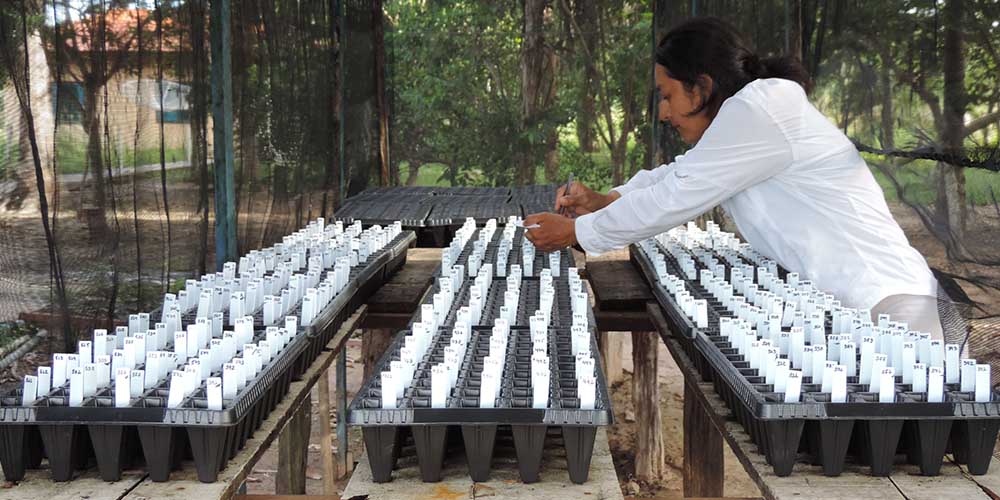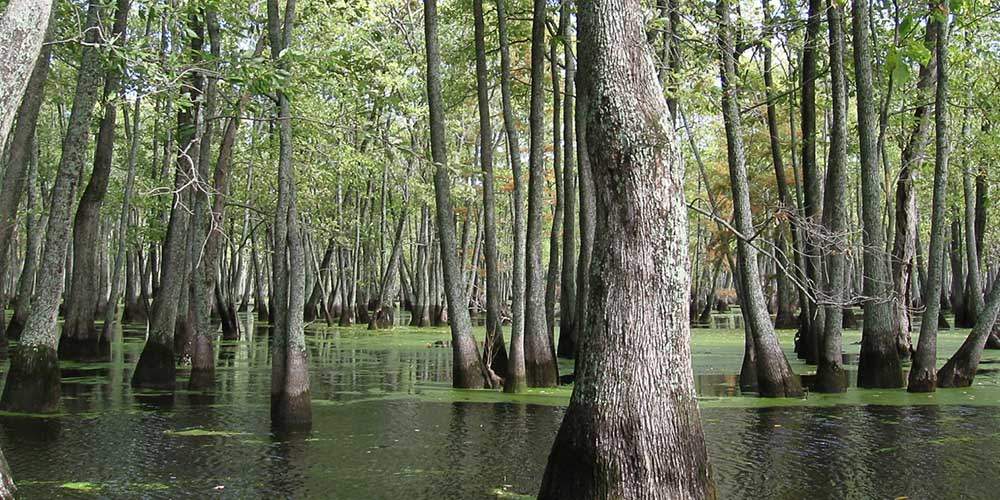Related Stories
Water Stories

FWRC Researcher Examines Impacts of Climate Change in the Amazon
The Amazon River Basin is one of the most critical pieces of the Earth's climate system, generating rainfall, lowering land surface temperatures, and influencing global weather patterns. However, the rainforests have experienced dramatic changes in the last few decades. The loss of this valuable resource prompted a historic scientific consortium in late 2021 at the 26th United Nations Climate Change Conference in Glasgow, United Kingdom. The Science Panel for the Amazon, or SPA, was a group of over 200 prominent scientists including Dr. Sandra B. Correa, assistant professor in the Department of Wildlife, Fisheries and Aquaculture and FWRC scientist.
Their objective was to create a comprehensive report assessing the state and future of the region's ecosystems in response to climate change and human activity. Correa and her team discussed trends in overall reduction in precipitation and increasing temperatures. Extreme drought, Correa explained, causes temporal fragmentation when river tributaries stay dry, and sediments cannot reach floodplains to fertilize plants. On the other end, massive floods threaten both terrestrial and aquatic animals. The report proposed several strategies to slow down and prevent reaching this point, including government commitment to stopping large-scale deforestation, holding off construction of large dams, and reducing CO2 emissions on a global scale.
Correa's work in the Amazon, though 3,000 miles away, provides application in Mississippi, where she studies rivers and aquatic life dependent on these ecosystems. This research is funded, in part, by the Forest and Wildlife Research Center.
2022

Amazon Secrets Help Mississippi’s Singing River
When FWRC scientist, Dr. Sandra Correa, first saw the Pascagoula River, she thought of the rivers back in her home of Colombia, South America. She was reminded of the 4,000-mile-long Amazon River which she studied extensively and began to look for parallels between the two. Both the Pascagoula and the Amazon flood for extended periods of time each year and Correa said those flooded rivers provide unique insight into the fish who must adapt to these changing habitats. Correa is applying her research of the Amazon River to the Pascagoula while focusing on how the flooded forest contributes to maintaining fish productivity. “My ultimate goal is to understand the ecosystem because in a flooded forest in the U.S., you have a huge diversity of animals—everything from crayfish to black bears,” said Correa.
“What I believe is that bottomland hardwood forests are maintaining wildlife diversity. I am starting with the first step—to prove bottomland hardwood forests are maintaining fish.”
2019

Legacy of the Lakes
Dr. Steve Miranda, assistant unit leader of the U.S. Geological Survey Cooperative Research Unit and FWRC adjunct professor, along with scientists in the Forest and Wildlife Research Center studied the balance between water from the Mississippi River Valley Alluvial Aquifer being used for industry purposes and protecting the area’s oxbow lakes that are being used as water sources. Delta farmers frequently use the water from these lakes as a source for irrigation, yet when a certain amount of water is drawn out, there are negative effects on aquatic health. Miranda and other researchers studied the biotic integrity of oxbow lakes and found that insufficient lake depth causes negative effects in biological and environmental changes. They determined that two meters in depth or less causes negative changes, and now they recommend that people do not draw out water from lakes that are around two meters in depth.